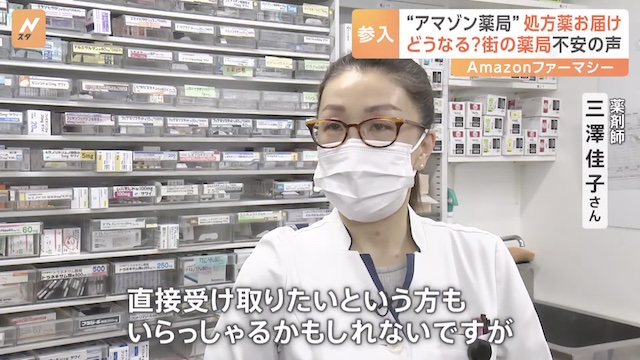TOKYO, Jul 24 (News On Japan) - Amazon has launched a new service in Japan called Amazon Pharmacy, which delivers prescription drugs to customers' homes.

This service, starting on July 23, partners with major pharmacy chains like AIN Group, Welcia, Qol Pharmacy, and Tomod’s, and requires users to register through a dedicated app.
Patients must first obtain an electronic prescription via in-person or online consultation. They then register this prescription on Amazon's app and choose a pharmacy. Pharmacists provide online instructions on medication usage, and the drugs are delivered to the patient's home by the pharmacy's partnered couriers. Delivery fees range from free to around 600 yen, and unattended delivery is not an option.
While the service has received positive feedback for its convenience, there are concerns about its impact on local pharmacies and the potential reduction in pharmacy jobs. The Japan Medical Association and the Ministry of Internal Affairs and Communications report low current adoption rates for electronic prescriptions and online consultations but expect future growth. Small and medium-sized hospitals and pharmacies may struggle to adopt these systems, potentially leading to their closure.
In the U.S., where Amazon Pharmacy has been operating since November 2020, there have been issues with major pharmacy chains closing stores and problems with counterfeit electronic prescriptions and illegal drug sales. The new service poses a challenge to balance convenience and productivity with preserving existing businesses.
Source: TBS















